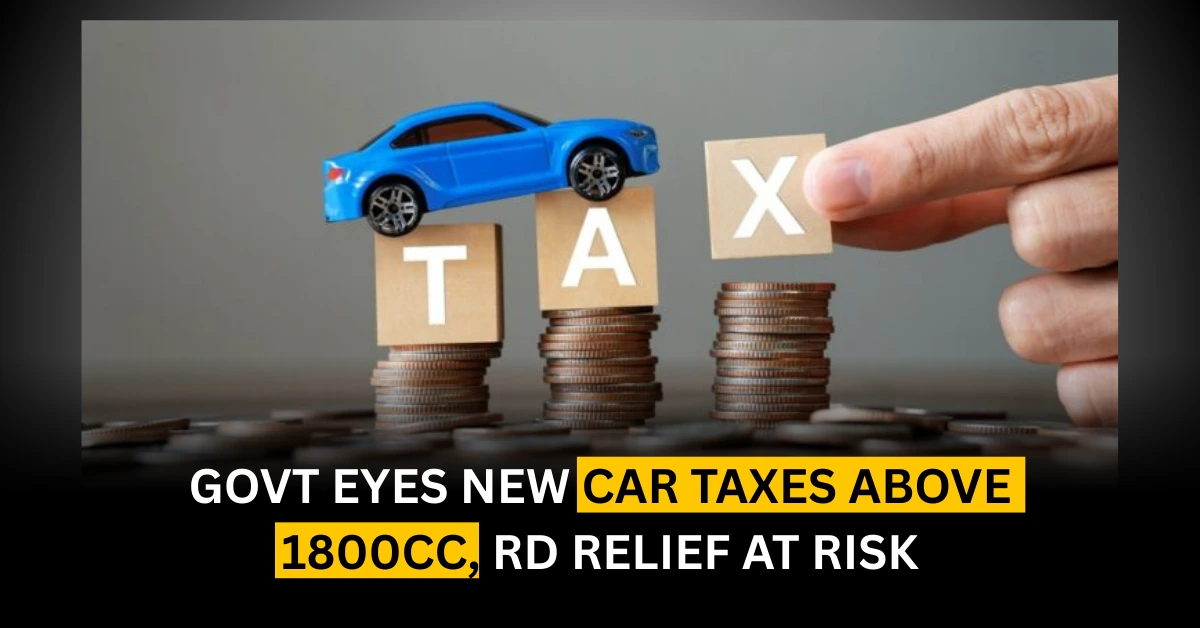Car Taxes Above 1800cc are at the center of Pakistan’s new mini-budget proposals as the government looks for ways to raise quick funds. Facing a widening fiscal gap and urgent flood-recovery revenue needs, policymakers are turning to the auto sector once again. The plan includes fresh levies on imported luxury vehicles, reversal of earlier regulatory duty (RD) relief, and new tax measures to meet an ambitious Rs 50 billion target. While these steps may provide short-term relief, they risk creating long-term challenges for the auto industry.
Revenue Pressures
The Federal Board of Revenue (FBR) has already missed its targets for July and August 2025 by nearly Rs 40 billion, with the deficit expected to deepen by the end of September. In response, the government is preparing short-term revenue measures through direct vs indirect taxation, aiming to stabilize its fiscal position.
Proposed Measures
Among the proposals under review are new car levies on cars above 1800cc, categorized as imported luxury vehicles. These are seen as high-value items suitable for additional taxes.
Key steps being considered:
- Higher duties on imports of luxury and high-capacity vehicles
- Additional taxes on cars above 1800cc
- Reversal of IMF trade-liberalization incentives
- Reintroduction of volatile RD policymaking that impacts both local vs imported cars
At the same time, the government is weighing the reintroduction of higher duties on imports, rolling back earlier RD relief that benefited both consumers and manufacturers.
Impact on the Auto Industry
For consumers, Car Taxes Above 1800cc would deepen the affordability crisis by making large imported vehicles significantly more expensive. Local manufacturers—who had benefited from earlier duty relief—now face auto sector disruption as production costs rise. This could push many buyers into a used car market shift rather than purchasing new vehicles.
For the industry, the frequent policy changes reflect an ongoing auto policy dilemma. Such inconsistency not only discourages new investment but also slows innovation, particularly in hybrid and EV adoption, which risk being discouraged due to unstable tax frameworks.
alsoRead:
MG Pakistan Reduces Prices of MG4 Excite and MG ZS EV
Short-Term Gains vs. Long-Term Growth
While the new Car Taxes Above 1800cc may deliver quick funds to meet immediate fiscal requirements, they risk undermining long-term industry growth. Policies focused on short-term revenue measures through volatile RD policymaking compromise stability, reduce consumer affordability, and hinder innovation.
For more related news, join our WhatsApp channel
Conclusion
The government’s approach may address the immediate tax shortfall (Rs 40 billion), but without a consistent framework, the auto sector will remain uncertain. Unless Pakistan shifts from temporary fixes to sustainable planning, Car Taxes Above 1800cc and related policy swings will continue to slow growth, reduce confidence, and delay modernization of the industry.



Join The Discussion